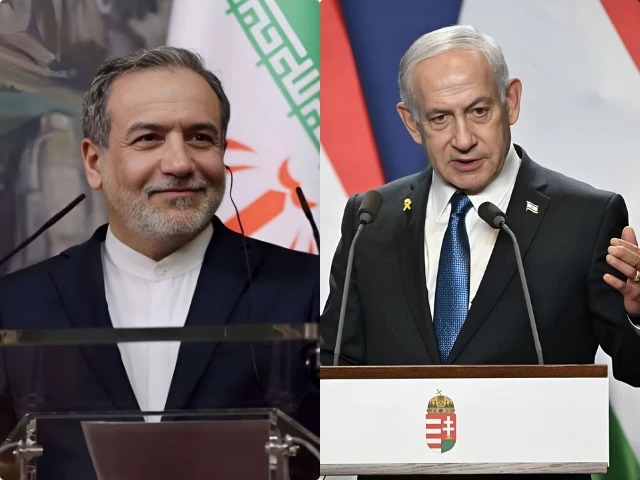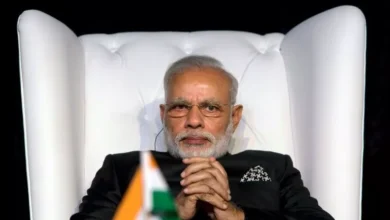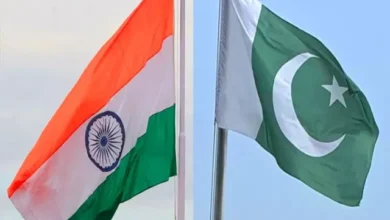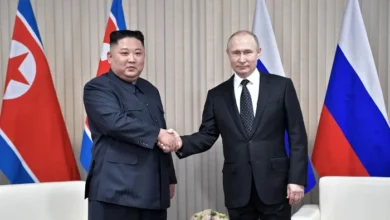Israeli Prime Minister Benjamin Netanyahu on Sunday renewed calls for Iran’s entire nuclear infrastructure to be dismantled, even as indirect negotiations continue between the United States and Iran for a potential nuclear accord.
The US and Iran have so far held three rounds of indirect talks, mediated by Gulf state Oman, aimed at striking a deal that would prevent Tehran from acquiring a nuclear weapon while easing the economic sanctions currently imposed by Washington.
Following talks in Rome earlier this month, Oman indicated that discussions were progressing towards an agreement that would leave Iran “completely free” of nuclear weapons and sanctions, while still allowing the country to maintain peaceful nuclear energy development.
Speaking in Jerusalem on Sunday evening, Netanyahu insisted that the only acceptable deal would mirror the 2003 Libya agreement, which led to Tripoli abandoning its nuclear, chemical, biological, and missile programmes.
Israeli officials have long maintained that they will act to prevent Iran from becoming a nuclear-armed state — a position Netanyahu once again underlined.
Meanwhile, Iran’s Foreign Minister Abbas Araghchi struck a defiant tone on Monday, stating Tehran would resist any attempts to impose conditions on its foreign policy.
Writing on X, Araghchi criticised Netanyahu’s pressure on U.S. diplomacy, remarking, “What is striking (…) is how brazenly Netanyahu is now dictating what President Trump can and cannot do in his diplomacy with Iran.”
Israel’s fantasy that it can dictate what Iran may or may not do is so detached from reality that it hardly merits a response.
What is striking, however, is how brazenly Netanyahu is now dictating what President Trump can and cannot do in his diplomacy with Iran.…
— Seyed Abbas Araghchi (@araghchi) April 28, 2025
Araghchi warned that any military strike on Iran would be met with immediate retaliation.
Despite pressure from Israel, the United States is reportedly unwilling, at this stage, to support military action against Iranian nuclear facilities.
Netanyahu confirmed that he had pressed President Trump for any new agreement to also curb Iran’s ballistic missile development, which remains a key sticking point in negotiations.
An Iranian official previously told Reuters that Tehran views its missile programme as a critical element of its national defence and foreign policy strategy.
Tensions between Israel and Iran have continued to escalate following attacks in 2024, when Iran launched drones, ballistic missiles, and cruise missiles at Israel in retaliation for the killing of Iranian generals and officials linked to Tehran’s proxy networks.
“We are in close contact with the United States,” Netanyahu said at a conference hosted by the Jewish News Syndicate. “But I said, one way or the other, Iran will not have nuclear weapons.”
At least 52,243 Palestinians have been killed in Israel’s war on Gaza since October 2023, according to the Health Ministry. In the past 24 hours alone, 51 people were killed and 115 injured, bringing the total number of wounded to 117,639.
Many victims remain trapped under rubble, the ministry said, with rescuers unable to reach them. An additional 697 names have been added to the official casualty registry.
Since Israel resumed its assault on March 18, following the collapse of a ceasefire, 2,151 people have been killed and 5,598 wounded.
The International Criminal Court last November issued arrest warrants for Israeli Prime Minister Benjamin Netanyahu and former Defence Minister Yoav Gallant for alleged war crimes in Gaza.
Israel also faces a genocide case at the International Court of Justice.







